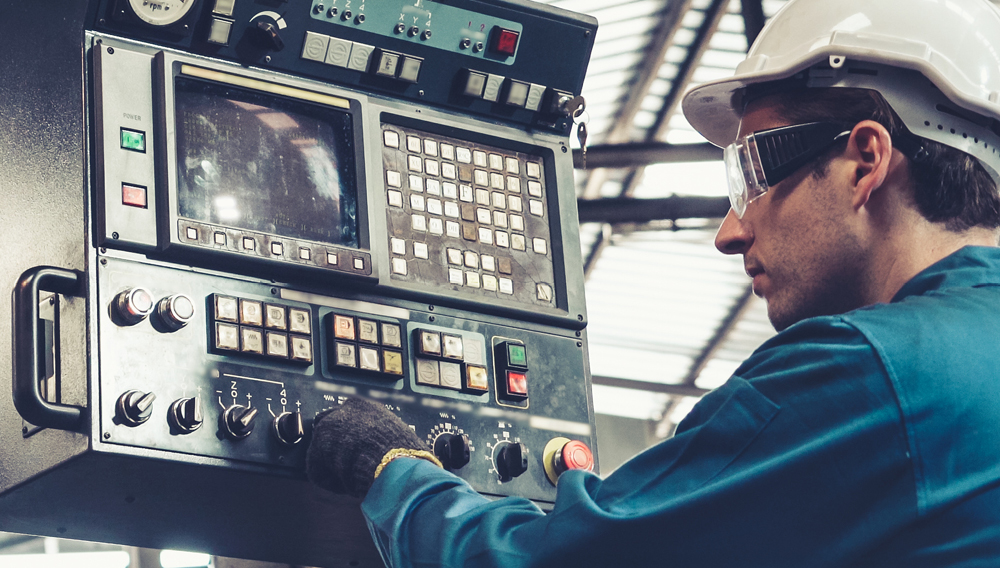What Is a Machine Operator?

You can find machines running in factories of all different kinds of industries. But who makes sure these machines stay running properly? These professionals are known as machine operators.
If you like working with your hands and learning how things are made, a career as a machine operator might be right for you. Read on to learn how to break into this field.
What Is a Machine Operator?
Machine operators are the professionals who load and operate machines, configure machine equipment, maintain the machines, and optimize the machinery so it can work to its full capability. They can work in a variety of industries such as the automotive, food, solar, medical, or other industries. You can often find them in warehouses, factories, workshops, shipyards, or construction sites, operating forklifts, cranes, or other heavy machinery.
What Does a Machine Operator Do?
A machine operator’s duties vary depending on what industry they work in, but they can usually be found doing the following:
- Calibrating machinery
- Performing routine inspections of equipment
- Using machinery to complete tasks
- Loading or unloading materials
- Ensuring machines are regularly cleaned
- Monitoring and controlling machine performance
- Conducting tests of machines
- Inspecting machinery
- Troubleshooting equipment issues
- Documenting product information
- Keeping an updated database on all machines
- Reading and interpreting blueprints and engineering specifications
- Maintaining a log of the activity
- Submitting performance reports
What Skills Do You Need for a Career as a Machine Operator?
To be a successful machine operator, you should possess the following skills:
- Attention to detail
- Interpersonal communication
- Physical strength
- Problem-solving skills
- Computer literacy
- Ability to use hand tools
- Physical stamina
- Time management skills
How to Become a Machine Operator
Are you interested in becoming a machine operator? That’s great! The first thing you need to do is earn at least a high school diploma. Most employers are fine with this level of education, but you can also choose to continue your education by earning an associate degree or professional certificate. It’s also important you gain some familiarity using hand tools, so you can show potential employers you are comfortable using basic tools like hammers, screwdrivers, wrenches, and other items common to machinery settings.
Completing an internship or apprenticeship may also be a good idea. Learning hands-on from someone already in the field can help you learn how to read blueprints, operate heavy equipment, and learn the innerworkings of a factory setting. You may also wish to pursue certain certifications to further demonstrate your industry-specific skills and knowledge.
Degree Requirements to Become a Machine Operator
As mentioned, usually to be a machine operator, you only need a high school diploma or GED. However, if you wish to pursue higher education, an associate degree in a technical or machine-related area would be beneficial.
Excelsior University’s Associate in Applied Science in Technical Studies program focuses on preparing students to be employed as technicians in technology-related industries such as nuclear, energy, computer, electronics, and electrical. The program’s four technical concentrations provide you with a broad professional and technical foundation in the various functional components of technology. This degree is an appropriate choice if you want to become a machine operator in the technology industry.
Machine Operator Certifications
While not required, certifications can make you stand out to potential employers. Some specific certifications for machine operators include the Manufacturing Skill Standards Council Certified Production Technician, Manufacturing Skills Institute Manufacturing Technician Level 1, the MSI Manufacturing Specialist, and the Lean Certification.



